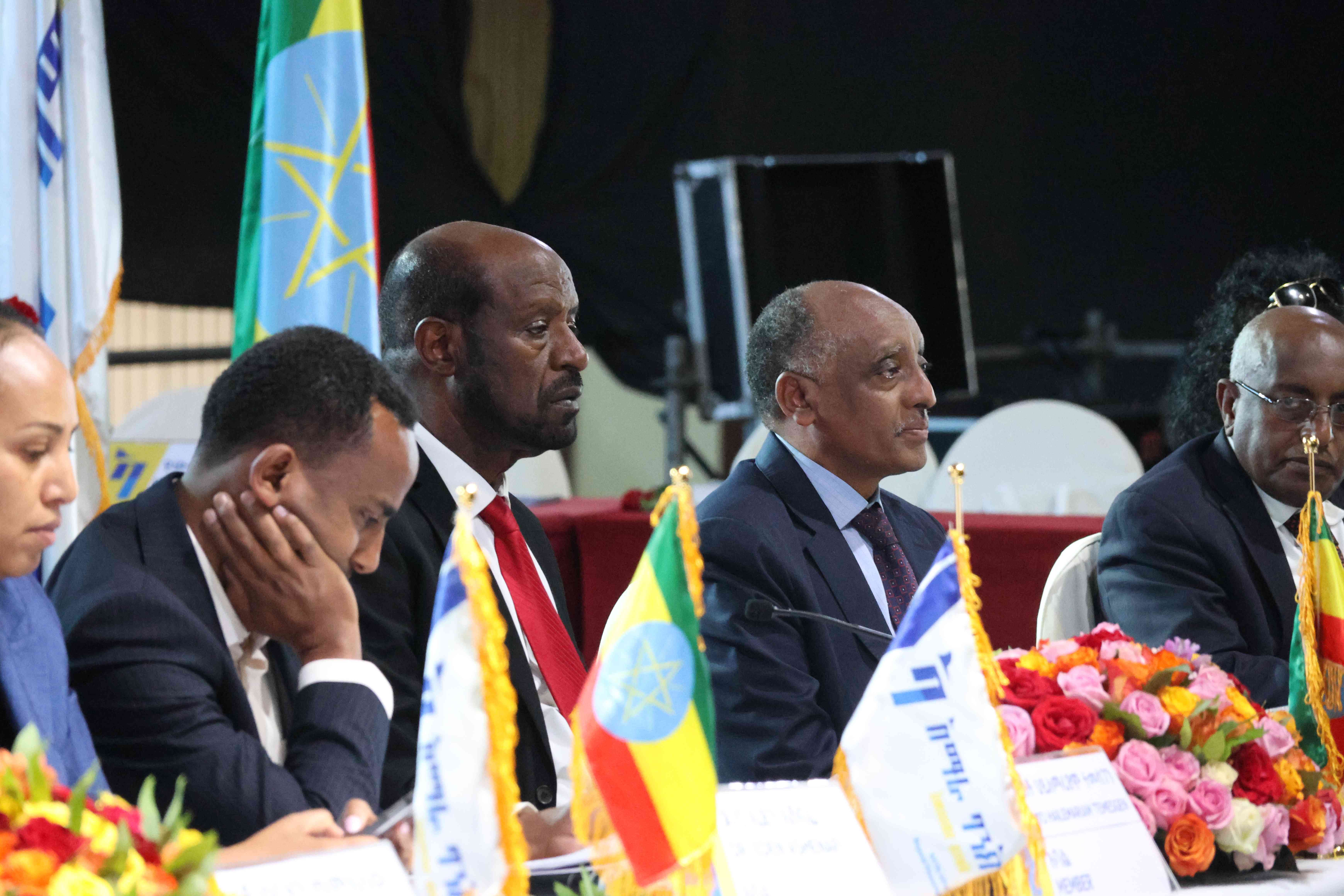
Viewpoints | Jul 13,2024
Jan 26 , 2019
By FASIKA TADESSE ( FORTUNE STAFF WRITER )
Despite sluggish foreign exchange earnings, Lion Bank, one of the 16 private banks, marked a successful financial cycle last year by recording 69pc profit growth.
Last year’s performance of the 12-year-old bank far surpassed the previous year's results when the Bank registered a profit growth of just three percent and a slump in shareholder return.
Last year's profit stood at 390.77 million Br, earning investors 7.55 Br a share with a par value of 25 Br. The shareholders’ return has shown an increase of almost two Birr.
The reason for the performance improvement was the efficiency of the Bank, according to Getachew Solomon, the fourth president of Lion who assumed the post in 2014.
"We attained efficiency by converting our resources into earning assets," Getachew toldFortune. "We have invested the resources in the areas that generate revenues."
The management of Lion should be applauded for this, according to Abdulmenan Mohammed, a financial statement analyst with a decade and a half experience in the finance and audit industries.
In addition to rising profit, the bank managed to show improved performance by increasing revenues.
Incomes from loan and advance interest and treasury bills of the National Bank of Ethiopia spiked to 1.17 billion Br, while incomes from fees and commissions went up by 14pc to 157.68 million Br.
Even though the Bank managed to register positive performance in increasing income from foreign exchange dealing by five percent to 53.08 million Br, the result is far lower than what it gained two years ago.
The Bank has been hit by a steady decline in earnings from foreign exchange transaction between 2011 and 2014 due to stiff competition, according to Abdulmenan.
But it had managed to reverse the trend for two years until 2016, before declines in earnings from forex returned in 2017, admits the president.
"Honestly, we didn't perform well in generating much foreign exchange in the reporting period," said Getachew. "We were just sharing the forex coming to the country."
Tassew Woldehanna (Prof.), the board chairperson of the Bank and the current president of Addis Abeba University, attributes under performance in the export sector and the chronic foreign exchange shortage as a major headache for the financial sector.
"These were the major challenges that left the banking business in difficult circumstances," wrote Tassew in his annual message to shareholders.
To reverse this trend, Lion should develop a strategy to improve this area of business, according to Abdulmenan.
Getachew agrees.
"We will focus on exports to improve our forex earning," he said. "Of course, we will have fallbacks and different scenarios if one of the strategies fails."
Lion’s increased income is accompanied by a significant rise in expenses that reached 1.08 billion Br.
Interest on deposits, employee salaries and benefits and other operating expenses increased by 76pc, 35pc and 15pc, respectively.
“We have done well in reducing controllable expenses by eight percent,” said Getachew.
Yet, Lion’s balance sheet grew remarkably in the reporting year.
The total assets of the Bank increased by 31pc to 14.32 billion Br; paid-up capital grew by 26pc to 1.18 billion Br; and the Bank had capital and non-distributable reserves of 1.58 billion Br.
Lion's capital adequacy ratio, the ratio of a bank's capital to its risk, stood at 21.4pc – considered safe territory.
Deposit mobilisation, at 11.64 billion Br, was another strength where the Bank registered a 32pc increase. Lion disbursed 7.37 billion Br as loans and advances, a 36pc growth.
This caused the loan-to-deposit ratio of the bank to increase to 63.3pc from 61.7pc. The bank is ranked as the eighth largest private bank in terms of the size of its loan disbursment, which has a 2.4pc share of the overall market. Commercial Bank of Ethiopia was the leading bank last year, disbursing 44.4pc of total loans.
Despite improvements in its loan-to-deposit ratio, Lion is still lower than the industry average of 66pc.
Lion, which ranks third among private banks in aggressive branch expansion last year, has invested 3.31 billion Br in National Bank bonds. Investments in bonds represent 23.11pc of Lion's total assets and 28.4pc of total deposits, which remained similar to the past four years.
Analysis shows that the Bank's liquidity level increased in value terms but was down in relative terms.
Lion increased its cash and bank balances by 13pc to 3.02 billion Br. Its liquid-assets-to-total-assets ratio fell to 21.1pc from 24pc, and liquid assets to deposits also decreased to four percent from 30pc.
Established by 6,392 shareholders with 200 million Br in paid-up capital, Lion increased its paid-up capital to 1.18 billion Br. It had capital and non-distributable reserves of 1.58 billion Br.
PUBLISHED ON
Jan 26,2019 [ VOL
19 , NO
978]

Viewpoints | Jul 13,2024

Commentaries | May 21,2022

Editorial | Apr 15,2023

Radar | Dec 16,2023

Editorial | Apr 09,2023

Viewpoints | Apr 15,2023

News Analysis | Apr 19,2025

Radar | Jun 01,2024

Viewpoints | Apr 22,2023

Radar | Oct 27,2024

Dec 22 , 2024 . By TIZITA SHEWAFERAW
Charged with transforming colossal state-owned enterprises into modern and competitiv...

Aug 18 , 2024 . By AKSAH ITALO
Although predictable Yonas Zerihun's job in the ride-hailing service is not immune to...

Jul 28 , 2024 . By TIZITA SHEWAFERAW
Unhabitual, perhaps too many, Samuel Gebreyohannes, 38, used to occasionally enjoy a couple of beers at breakfast. However, he recently swit...

Jul 13 , 2024 . By AKSAH ITALO
Investors who rely on tractors, trucks, and field vehicles for commuting, transporting commodities, and f...

Jul 5 , 2025
Six years ago, Ethiopia was the darling of international liberal commentators. A year...

Jun 28 , 2025
Meseret Damtie, the assertive auditor general, has never been shy about naming names...

Jun 21 , 2025
A well-worn adage says, “Budget is not destiny, but it is direction.” Examining t...

Jun 14 , 2025
Yet again, the Horn of Africa is bracing for trouble. A region already frayed by wars...